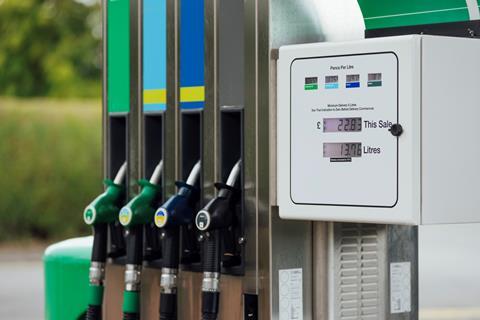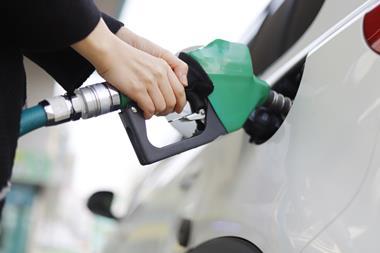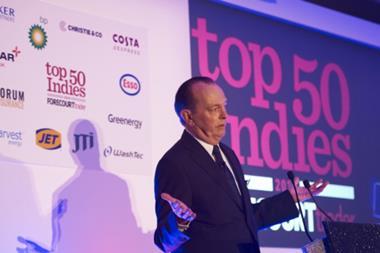
The CMA’s latest monitoring report on road fuel has found that prices at the pump have risen since late January, accompanied by above average margins and spreads.
The report covered fuel prices at the pump from the end of October 2023 to the end of February 2024. Overall, while pump prices for both petrol and diesel have decreased since October 2023, this can be divided into two separate periods.
From late October to late January petrol prices decreased by approximately 14ppl (from 153.97ppl to 139.39 ppl) but between January and late February fuel prices have edged up by around 5ppl (to 144.73 ppl).
The price of diesel also fell 14ppl (from 161.76ppl to 147.93ppl) between late October to late January. Since then, it has risen by over 6ppl (to 154.53ppl) between January and late February. This has been driven, in part, by global factors such as changing crude oil prices.
The CMA also looked at the retail spread – the average price that drivers pay at the pump compared to the benchmarked price that retailers buy fuel at – from November 2023 to the end of February 2024.
While spread analysis can give a quick overview of trends in the sector, the CMA said it is a less reliable indicator of competitive intensity than individual retailers’ fuel margins. Retail spreads increase and decrease in response to the volatility of wholesale prices but are expected to return to a normal range over time.
Retail spreads were above the long-term average of 5-10ppl, with petrol averaging 15.2ppl and diesel averaging 15.15ppl from November to February.
This has increased since the CMA’s previous report, which covered the period of May to the end of October, where the average spread was 12.3ppl for both petrol and diesel.
The CMA said that if average spreads remain elevated for an extended period of time, this could indicate a lack of retail competition in the sector.
The CMA issued requests for information to Applegreen – Petrogas, Asda, BP, Esso, Euro Garages Ltd, Morrisons, Moto Hospitality, Motor Fuel Group, Rontec, Sainsburys, Shell, Tesco, and Welcome Break.Responses were received in time for inclusion in this report from all but Shell. However, Shell has been providing data voluntarily in response to information requests since January 2024.
The CMA is collecting data from fuel retailers under the interim scheme which remains voluntary, until the CMA’s statutory compulsory information gathering powers come into effect later this year.
The update also found that fuel margins remain at the high levels seen during the CMA’s market study.
Dan Turnbull, senior director of markets at the CMA, said: “Drivers are feeling the pinch as fuel prices have been edging up since January. We’re particularly concerned by high margins which indicate weakened competition and are not a good sign for drivers.
“Today’s report reinforces the need for Pumpwatch and statutory powers to be in place as soon as possible, to ensure competition is effective in this market and to get a better deal for UK drivers.”
































